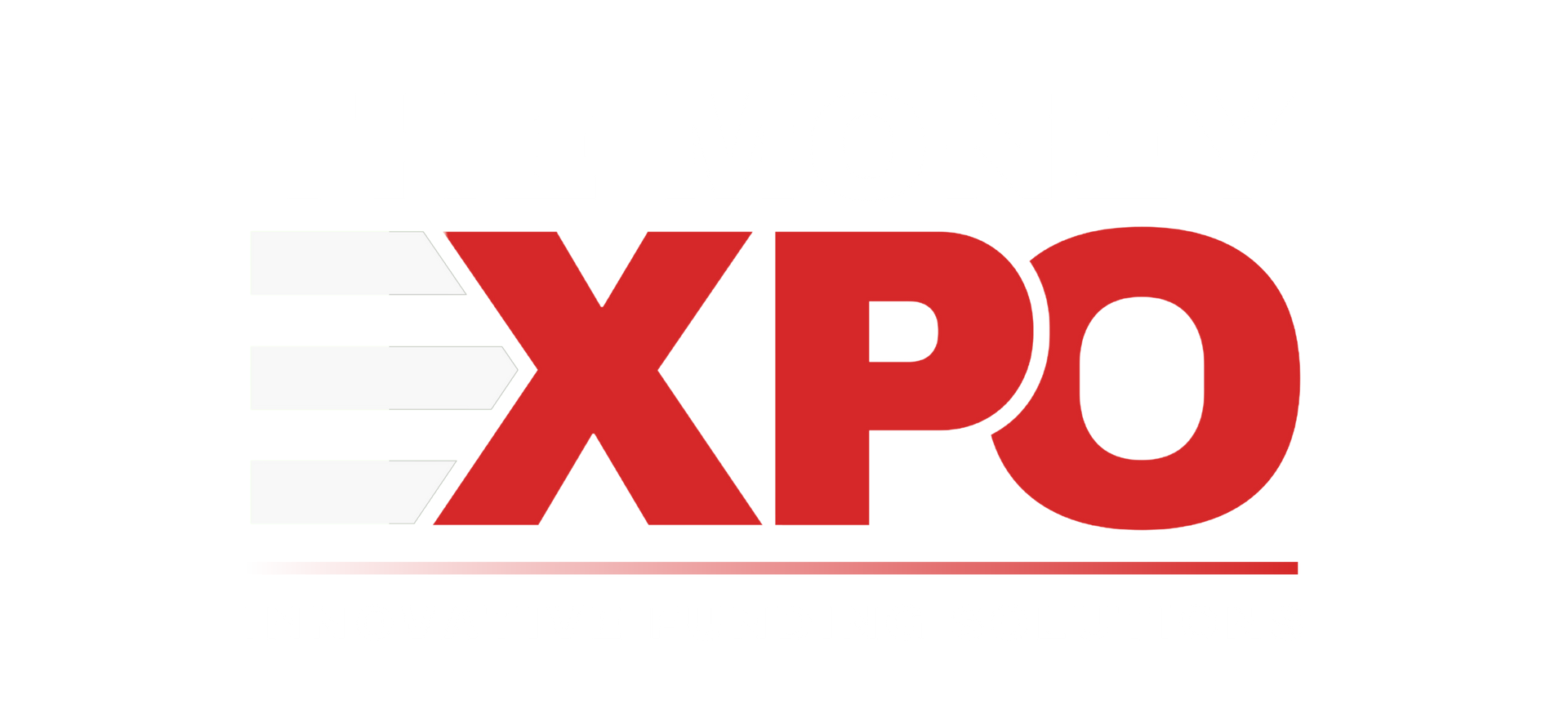The Truth About Business Credit: How to Build and Use It Wisely
Unlocking the power of business credit to grow your company, increase funding opportunities, and protect your personal finances.

When it comes to running a successful business, cash flow and funding are often top of mind. But one of the most overlooked tools in the entrepreneur’s toolbox is business credit—a powerful resource that can unlock capital, reduce risk, and help your company grow on its own financial merit.
At The Money Expo, we’re committed to empowering entrepreneurs with the knowledge and tools to take control of their financial futures. Whether you’re launching a startup, scaling an established company, or exploring franchise opportunities, understanding how business credit works—and how to build and use it strategically—can open doors that personal credit alone cannot.
In this guide, we’ll walk you through the real story behind business credit: what it is, why it matters, how to build it from scratch, how to protect it, and how to leverage it wisely for sustainable business growth.
What Is Business Credit?
Business credit is a financial profile attached to your company, separate from your personal credit score. It reflects your business’s ability to borrow money, pay vendors, and manage debt responsibly.
Just like individuals have credit reports from agencies like Equifax, Experian, and TransUnion, businesses have credit profiles tracked by agencies like Dun & Bradstreet, Equifax Business, and Experian Business.
Key metrics in your business credit profile may include:
- Payment history
- Credit utilization
- Business size and longevity
- Public filings (e.g., bankruptcies, liens)
- Number of trade accounts
A solid business credit profile shows lenders, suppliers, and partners that your company is trustworthy and capable of managing its finances.
Business Credit vs. Personal Credit: What’s the Difference?
Many new entrepreneurs rely on personal credit to fund their businesses, especially in the early stages. It’s often faster, familiar, and accessible. But as your company grows, continuing to use personal credit for business expenses can come with serious limitations—and risks.
Personal credit is tied to your Social Security Number, while business credit is linked to your company’s Employer Identification Number (EIN). When you rely on personal credit, any missed payments or high balances can negatively impact your individual credit score—making it harder to qualify for loans, credit cards, or even housing in your personal life.
In contrast, business credit allows you to build a financial identity that belongs solely to your company. It helps you qualify for business-specific financing, such as lines of credit, loans, and corporate cards, without putting your personal credit on the line. It also boosts your credibility with vendors, many of whom offer trade terms like net 30 or net 60 only to businesses with established credit profiles.
Perhaps most importantly, using business credit allows you to separate your personal and business finances, which is essential for accurate bookkeeping, tax reporting, legal protection, and long-term financial health.
The Benefits of Building Strong Business Credit
There’s a reason smart business owners and franchisors prioritize their business credit profiles. Here are some of the top benefits:
1. Access to Capital
Good business credit increases your chances of qualifying for business loans, lines of credit, and corporate credit cards—often with better terms and higher limits.
2. Better Vendor Terms
Suppliers may offer net 30, 60, or even 90-day terms when you have strong credit, giving your business time to generate revenue before paying for inventory or services.
3. Lower Interest Rates and Insurance Premiums
Just like with personal credit, a solid business credit score can help you qualify for lower interest rates and even reduced insurance premiums.
4. Business Credibility
A strong credit profile signals to vendors, partners, and investors that your business is stable and responsible with money.
5. Protection for Your Personal Finances
By building business credit, you can limit the need for personal guarantees and reduce personal liability for business debts.
Step-by-Step: How to Build Business Credit from Scratch
Whether you're brand new or already operating, here’s how to start building (or improving) your business credit profile:
1. Establish Your Business as a Legal Entity
To separate personal and business credit, you need to form a legal entity such as an LLC or corporation and register it with your state.
2. Get an Employer Identification Number (EIN)
Your EIN is like a Social Security Number for your business. It’s required to open business bank accounts, apply for credit, and file taxes.
3. Open a Business Bank Account
Maintain a dedicated checking account for your business to manage income and expenses. Consistency here is key for demonstrating legitimacy.
4. Get Listed with Business Credit Bureaus
Register your business with Dun & Bradstreet and obtain a D-U-N-S Number. Make sure your business information is consistent across all platforms.
5. Establish Trade Lines with Vendors
Start small by working with vendors who report payments to credit bureaus. These might include office supply companies, wholesale distributors, or utility providers.
Examples of vendors that report include:
- Uline
- Quill
- Grainger
6. Apply for a Business Credit Card
Look for a card that reports to business credit bureaus. Use it responsibly—pay it off monthly and keep your utilization low.
7. Pay On Time (Or Early!)
Your payment history is the single most important factor in your business credit score. Set up reminders or auto-pay to avoid missed payments.
Common Mistakes That Hurt Business Credit
Even well-meaning entrepreneurs can unintentionally damage their business credit. Here are a few pitfalls to avoid:
❌ Using Personal Credit for Business Purchases
This not only muddies your financial records but can also hurt your personal score if cash flow fluctuates.
❌ Applying for Too Much Credit Too Fast
Each credit application can trigger an inquiry. Too many in a short period can appear risky to lenders.
❌ Ignoring Errors on Your Credit Reports
Just like with personal credit, errors happen. Monitor your business credit reports regularly and dispute any inaccuracies.
❌ Letting Old Accounts Close
Older credit accounts boost your business credit history. Keep long-standing accounts active, even if you use them sparingly.
How to Use Business Credit Wisely
Building business credit is just the beginning. Here’s how to use it strategically:
✅ Use It to Grow—Not Just to Spend
Smart business owners use credit to invest in revenue-generating activities, like marketing, inventory, or expansion—not luxuries or liabilities.
✅ Keep Utilization Low
Aim to use less than 30% of your available credit at any time. High utilization can hurt your score, even if you pay in full.
✅ Monitor Your Scores Regularly
Check your scores with Dun & Bradstreet, Experian Business, and Equifax Business. Many services offer monthly monitoring and alerts.
✅ Build Relationships with Lenders
If you plan to seek larger loans or lines of credit, having a track record with banks or lenders will help. Start small and grow the relationship over time.
✅ Use Credit to Leverage Opportunities
Strong business credit can help you negotiate better terms, secure early payment discounts, and compete for contracts that require financial stability.
Business Credit and Franchising: A Game-Changer
If you're exploring franchise ownership—a major theme at The Money Expo—business credit is even more essential.
Many franchisees need to secure funding for:
- Franchise fees
- Equipment
- Build-out costs
- Marketing
With solid business credit, you can qualify for financing faster and with less personal risk. Plus, franchisors often look for financially stable candidates when awarding new territories.
Tools & Resources for Building Business Credit
Here are a few resources to help you get started:
- Dun & Bradstreet – www.dnb.com
- Nav – Offers credit monitoring and funding tools for small businesses
- CreditSafe – Business credit scores and insights
- Experian Business Credit Reports – www.experian.com
- SBA Lender Match – Tool to connect you with vetted lenders
The Future of Business Credit
As digital tools and financial platforms evolve, business credit is becoming more transparent, more accessible, and more essential. Fintech lenders, B2B platforms, and even some suppliers are now using AI-driven credit scoring to make real-time decisions.
That means your business’s financial footprint matters more than ever—and it’s never too early to start shaping it.
In a world where access to capital can determine the difference between success and struggle, business credit is no longer a luxury—it’s a necessity.
Conclusion: Build Your Foundation with Confidence
Business credit isn’t just about borrowing money—it’s about building trust, creating financial freedom, and positioning your company for long-term growth. By separating your personal and business finances, establishing a credit profile, and managing it wisely, you give your business the tools it needs to thrive.
At The Money Expo, our mission is to arm entrepreneurs, investors, and franchise seekers with the education and access they need to win in the financial world. Whether you’re just starting out or scaling your empire, understanding business credit is one of the most powerful steps you can take.
Ready to learn more and network with finance professionals, lenders, and franchise experts? Join us at The Money Expo and take control of your financial future—one smart decision at a time.












